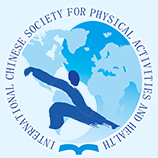Document Type
Abstract
Publication Date
8-1-2022
Abstract
Under the background of the integration of sports and education, it is of great significance to deepening the training theory of college sports teams. This research puts forward the necessity of using the complexity paradigm to find a more suitable training theory for college sports teams. The training theory of our country is deeply influenced by the simplicity paradigm. The simplicity paradigm is based on reductionism, which believes that the research object comprises simple addition of single elements, showing a linear relationship. There are many general pieces of training in the training arrangement, the preparation period is too long, the special training is not deepened, and the actual training effect is poor. Lack of a composite coaching team, in addition to training and competition tasks, but also team building and management, too exhausted, no time to delve into training theory. When using traditional sports staging theory to make training arrangements, the student-athletes’ particularity should be taken into consideration. University sports teams are affected by the economy and school development, and the strengths of various sports teams are uneven. Universities with superior resources are in a leading position in major competitions, resulting in a significant gap in competition. The development of training theory should be based on the particularity of student-athlete status. The integration and in-depth development will improve the overall level of competition and enhance the driving force of innovative sports team training theory innovation.
DOI
https://doi.org/10.18122/ijpah.1.2.38.boisestate
Recommended Citation
Wang, Zeyuan; Zhang, Zhendong; and Sima, Haoxiang
(2022)
"The Training Theory of Chinese University Sports Teams Based on the Complexity Paradigm,"
International Journal of Physical Activity and Health: Vol. 1:
Iss.
2, Article 38.
DOI: https://doi.org/10.18122/ijpah.1.2.38.boisestate
Available at:
https://scholarworks.boisestate.edu/ijpah/vol1/iss2/38
Included in
Exercise Science Commons, Health and Physical Education Commons, Public Health Commons, Sports Studies Commons


